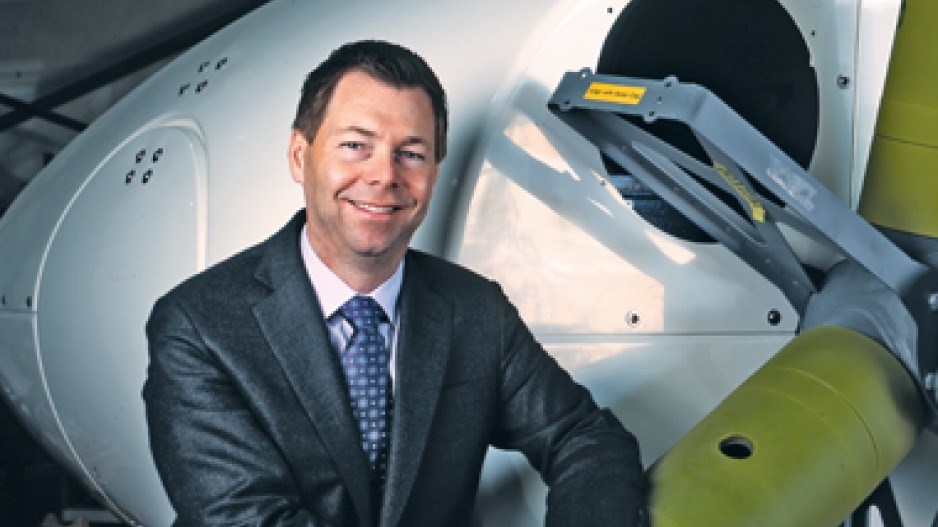From a warehouse-type building in South Surrey, Glenn Johnson can monitor and remotely control the performance of his company’s more than 600 wind turbines scattered across the United Kingdom and the United States.
But it’s the performance of 115-employee Endurance Wind Power Inc. and the entrepreneurial successes of its CEO, Johnson, that are being monitored by Canada’s clean tech and business communities.
The EY (formerly Ernst & Young) 2013 Entrepreneur of the Year (Pacific Region) award winner said business has been so good that the challenge is how to manage the growth.
“We were profitable last year and had very significant growth,” said Johnson, a former Business in Vancouver Forty under 40 award recipient.
The wind turbine manufacturer is now planning to increase its 80-employee staff at its Surrey production plant to more than 100 within the next 12 months. It also hopes to add new hires in Italy, where it’s seeing “extreme growth”, and in the U.K. and U.S.
Endurance started out as a turbine design, engineering and manufacturing company. And while it still designs and sells turbines, the game-changer as far as valuation and exposure to the marketplace is concerned, came when it started to use its own products to sell power under 20-year power-purchase agreements to utilities or private customers.
Its 50-kW turbines are made in Surrey. They cost up to $500,000 and can power between 20 and 25 average-size homes. Endurance’s larger 225-kW version is made in the U.K. and has a price tag of up to $850,000. Customers are mainly farmers but also include hospitals and schools.
Johnson said the global distributed energy market – producing power where it’s used – is becoming significant.
“Whether it’s wind or solar or other forms of distributed generation, that is the way of the future,” he said. “It allows us to get so much more out of our grid, it allows us to implement renewable energy at a cost-effective rate and it also saves on these very, very expensive transmission upgrades that no government or private company has the capital to put out for such a long payback.”
Endurance, which is largely employee-owned – its staff, from production workers to executives, have paid anything from $1,000 to $300,000 for a share of the company – might be considering a move to larger premises if it outgrows the current one.
But Johnson said the company would remain headquartered in Surrey, in part because he lives in the city and wants to be close to where he works, but also because of the available talent pool.
He added that a public listing is also on the company’s strategic road map, saying Endurance, which has Yaletown Venture Partners as its major institutional investor and the Tsleil-Waututh Nation with a $2 million equity stake, would be better able to access capital.
Ron Voyer, EY’s regional award program director, said in a release that Johnson founded Endurance in 2007 after several previous entrepreneurial successes and in five short years established the company as a global leader.
“Glenn proves that anything is possible with determination,” Voyer said in the release.
But Johnson credits team effort for the award.
“The reason we got it is because I think we are doing compelling things, we’re creative, we’ve got vision and we’re executors, we make things happen,” he said.
“There’re not many profitable clean-tech companies out there, and we’ve proved that we can be one of them.” •




